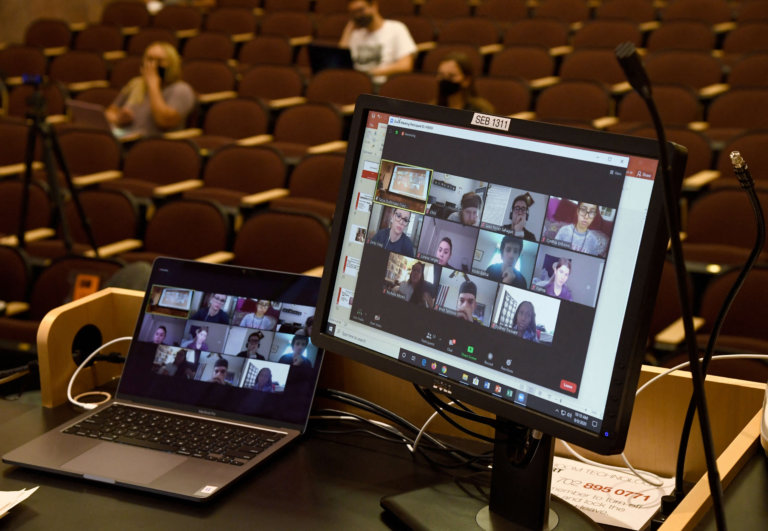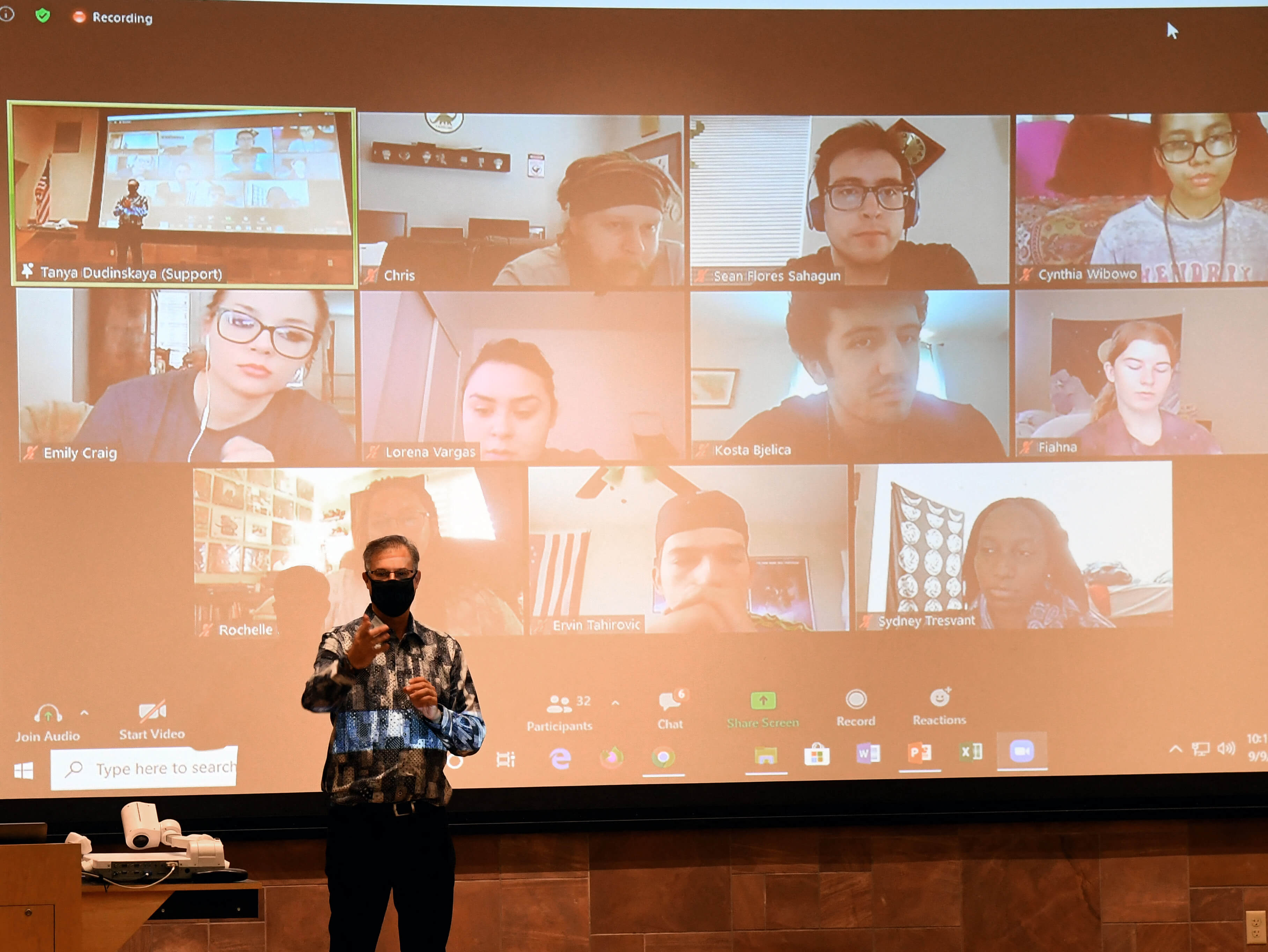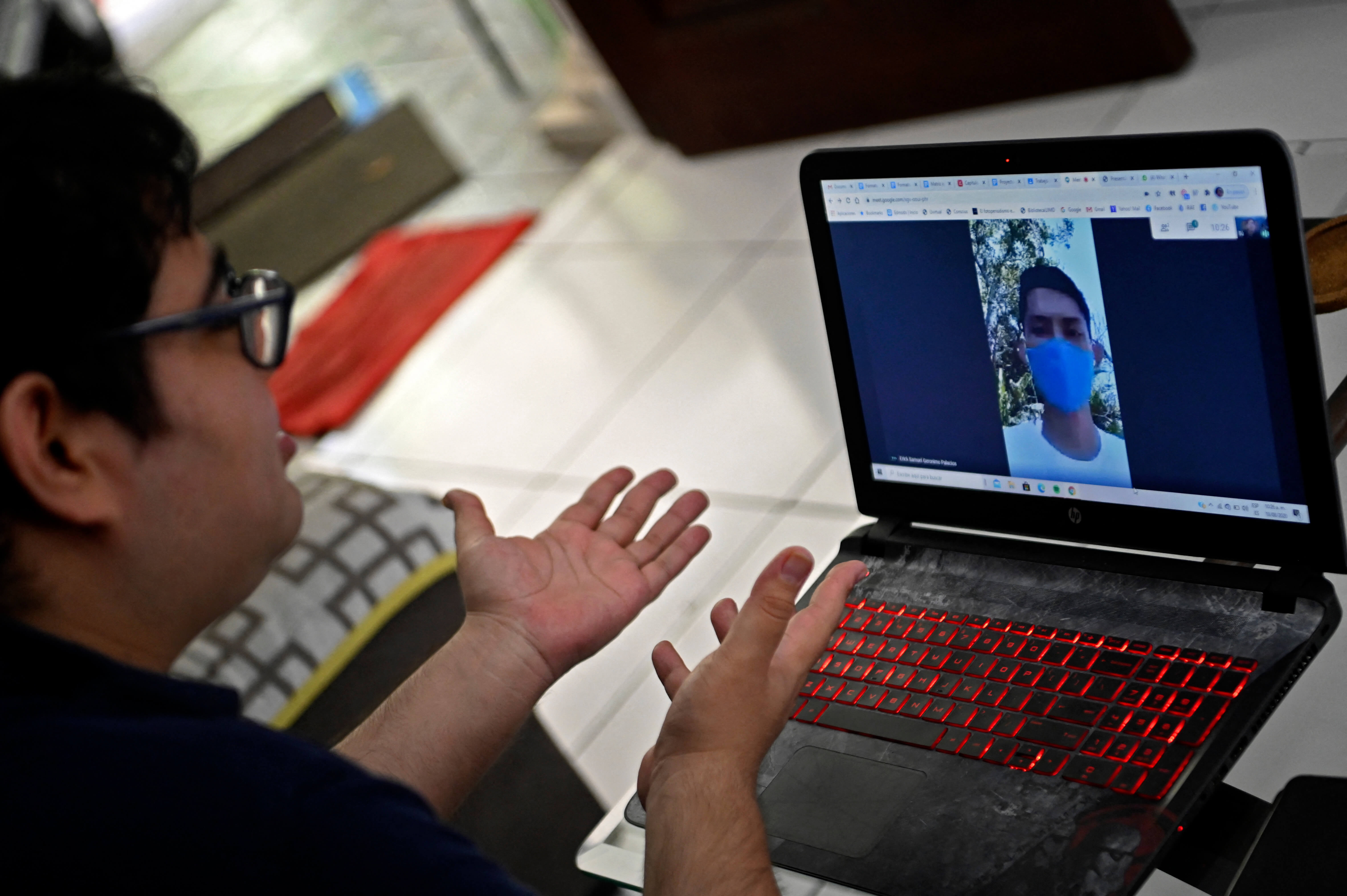
Of all the things needed for academic success, one of the most essential is for students to have a good rapport with their instructors. This is particularly true in the digital classroom, where research has shown that students who have a good rapport with their teachers are more likely to stick with a class and get good grades. As a community college instructor who has studied teachers’ perspectives on what it takes to establish a good rapport with students, I have observed five actions that I believe all educators should take to build better relationships in their online classes.
Work in real time

Students benefit not only when they build rapport with teachers. Source: Ethan Miller/Getty Images/AFP
When students and teachers work together in real time through videoconferencing, it is easier to maintain engagement. Teachers can watch for sleepy or distracted students, and see whether students look confused or enthused. Using livestreams and Zoom are not without their problems, though. Some students and teachers may not feel comfortable having others see their home environments. These individuals may need to be given the occasional pass when things are especially noisy or messy at home.
Others may not have the bandwidth or the hardware needed to connect in real time. However, schools and internet providers are working to fill in gaps between the digital haves and have-nots. In the meantime, teachers can post video recordings of lessons for any students who miss class because of internet connection problems.
Foster collaboration

When people talk about themselves, they make themselves more approachable. Source: Ethan Miller/Getty Images/AFP
Students benefit not only when they build rapport with teachers – they also benefit when they build rapport with one another. When students are regularly given the opportunity to solve problems and build understanding as part of a team, the classroom becomes a more respectful and productive place. It can also foster a more welcoming environment, and this can be especially meaningful for introverted students.
Shy individuals may find a classroom intimidating, and having a camera in one’s face does little to reduce self-consciousness. When names are connected to faces, and faces are connected to real, imperfect, striving students, a feeling of community is built. Learners also have the opportunity to see their teacher assisting others, which can help educators show their sincere desire to assist and answer questions.
Share something personal

By getting to know each student and checking in regularly, a teacher can identify challenges and problems early, thereby addressing them before they get out of hand. Source: Ethan Miller/Getty Images/AFP
When people talk about themselves, they make themselves more approachable. Sharing personal stories helps others better understand a person. Research shows that when uncertainty about a person is reduced, people become more comfortable with the person and perhaps even like them.
Communication professor Joseph Walther has found that meaningful relationships can develop online if all those involved are willing to reveal something about themselves. This does not mean that an entire class period should be taken up with self-indulgent musings. Small injections of humanity will suffice. Perhaps the instructor gives an occasional update on something from their personal life, be it progress on their sourdough starter or their foray into beekeeping. Giving a glimpse of teachers’ home lives can also be appreciated, whether it’s through an introduction to a child or a quick glimpse of the family cat.
Sharing shouldn’t be a one-way street. Students should also be given an outlet for self-expression. This could mean writing a short biography and sharing it on a class discussion board or perhaps making a TikTok video related to concepts in the course.
Remember the little details
By getting to know each student and checking in regularly, a teacher can identify challenges and problems early, thereby addressing them before they get out of hand. Further, when teachers show sincere interest in their students as individuals, those students feel safer and more supported. Even small gestures can mean a great deal: attaching a congratulatory note to a good assignment grade; sharing a funny video with someone having a rough day; asking a student about their favorite sports team; or posting an interesting article related to a pupil’s hobby.
For some college students, just having a professor who knows their names can be meaningful. When students feel an instructor truly cares about them and their success, those students are more likely to engage with the course material and the teacher. This is especially important when students are experiencing increased levels of anxiety during the COVID-19 pandemic.

Whether online or face to face, students need structure for success. Source: Amanda Andrade-Rhoades/AFP
Keep classes orderly
Whether in online classes or face to face, students need structure for success. Based on what I have observed, when students have simple, clear instructions and schedules, their uncertainty is reduced, and thus, excessive anxiety can be avoided. When students are not overwhelmed, they are more likely to connect with others, process information and synthesize it successfully.
Ultimately, online education has much in common with face-to-face education. Neither is without its challenges and joys, and both benefit from strong student-teacher rapport.










